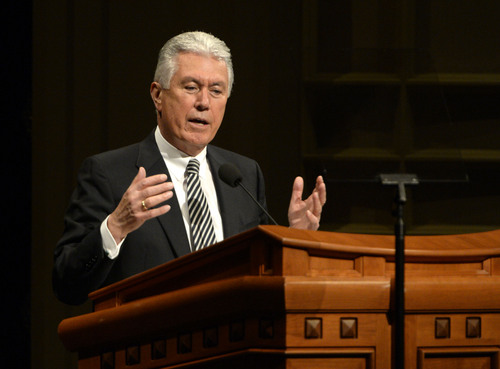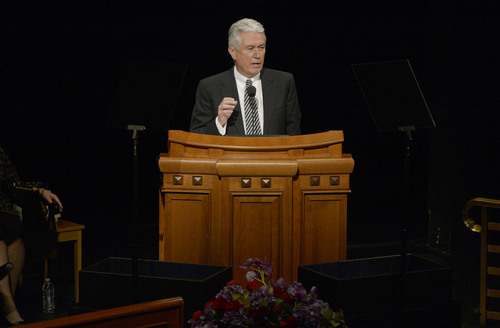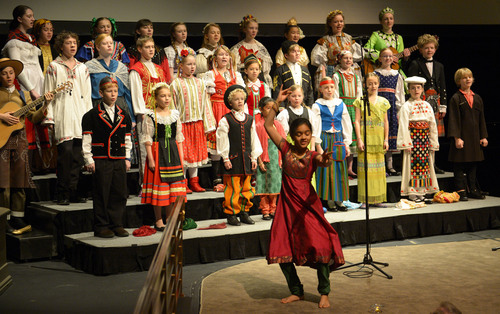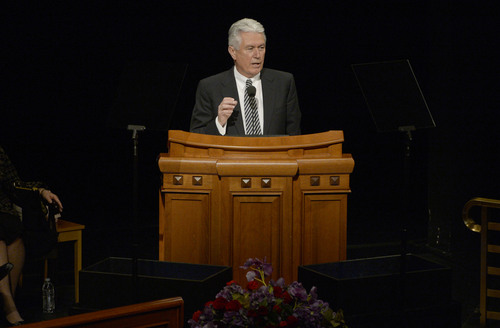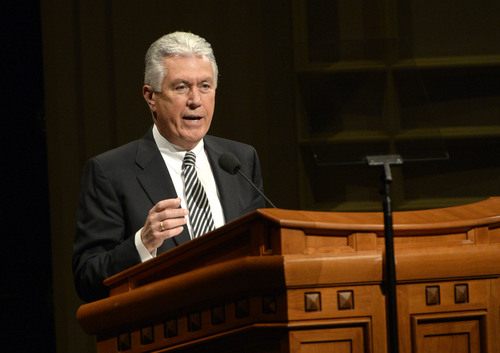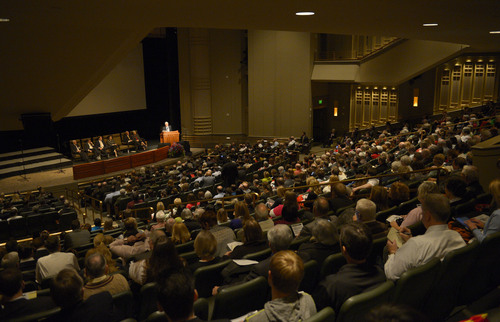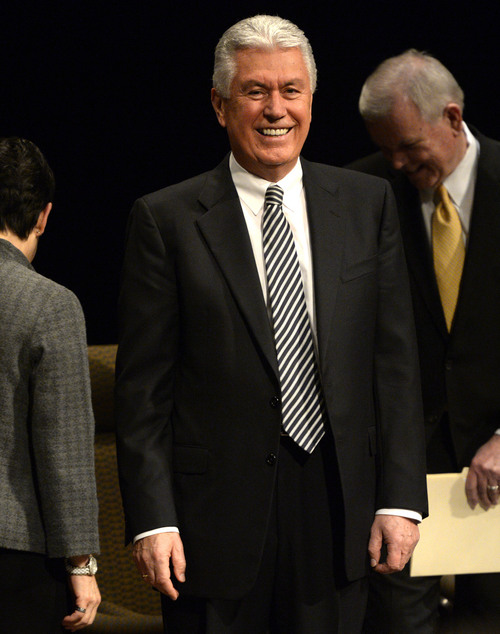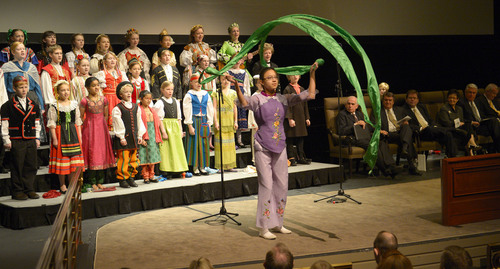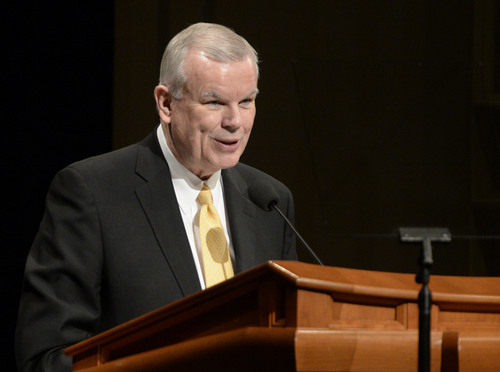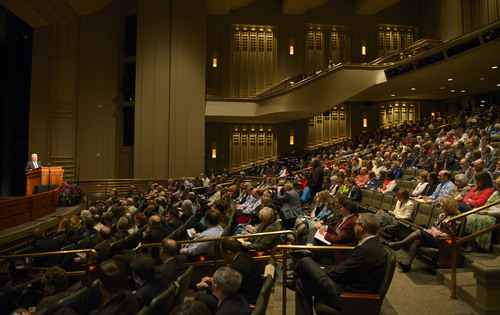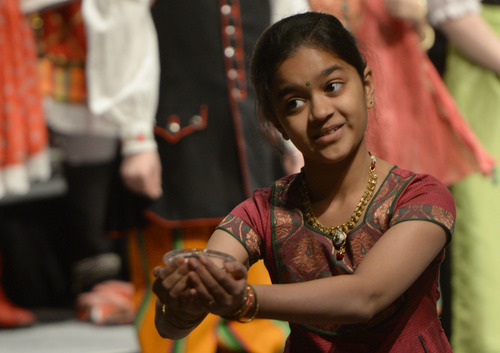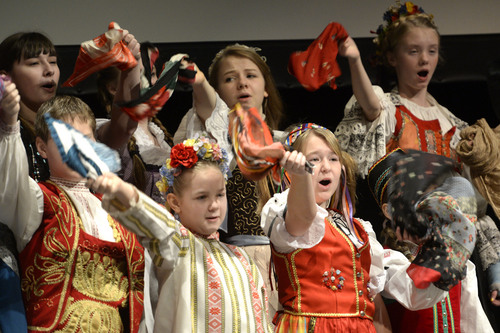This is an archived article that was published on sltrib.com in 2014, and information in the article may be outdated. It is provided only for personal research purposes and may not be reprinted.
Mormons shouldn't shy away from their religion's history, but neither should they be quick to discard their faith if what they learn appears inconsistent with LDS teachings, a member of the church's governing First Presidency said at a symposium Friday.
"There will be times when it may appear that things are going badly for the truth of God, that the evidence of the world contradicts God's utterances," Dieter F. Uchtdorf, second counselor to church President Thomas S. Monson, told the audience in Salt Lake City's Conference Center Theater. "For my part, I have learned to be patient, knowing that, in the end, things will work out."
The church has posted "Gospel Topics" essays on its website in recent months, aiming to contextualize complex or controversial issues such as DNA evidence and the Book of Mormon, past polygamous practices within the LDS Church, and the faith's former ban on black men holding the priesthood.
Uchtdorf, dubbed in some quarters as "Mormonism's Pope Francis," did not refer directly to these essays but encouraged the crowd of history enthusiasts to continue their search for knowledge.
"Truth and transparency complement each other," he said. "We always need to remember that transparency and openness keep us clear of the negative side effects of secrecy or the cliché of faith-promoting rumors."
Still, he maintained that the teachings of Jesus Christ are "the most practical of all truths" and cautioned: "It is my conviction that those who disregard the reality of heaven will ultimately find themselves on the wrong side of history. That is true for any issue, even the issues we are struggling with today."
Two prominent observers of Mormon history and culture who read a transcript of Uchtdorf's remarks welcomed Friday's message.
Richard Bushman, a historian and author of "Rough Stone Rolling," an acclaimed biography of LDS founder Joseph Smith, was struck by the leader's emphasis on transparency.
"Church members are divided about how far to delve into our history when it sometimes brings up disturbing matters," he said. "President Uchtdorf advocates openness. … He is saying we need not fear so long as we heed his advice and remain patient and open."
"We have a complicated history — what religion doesn't?" said Jana Riess, author of the popular "Flunking Sainthood" blog. "It's a fascinating, beautiful, complicated history, and we should be proud of many aspects of that."
Riess also was struck by Uchtdorf's caution not to "assume … that our experience encompasses everyone else's, that our truth is complete and universal." She saw it as a gentle reminder to keep an open mind.
Presenters at the two-day conference, sponsored jointly by Brigham Young University and the LDS Church's history department, examined topics ranging from "Is the LDS Church a Japanese New Religion?" and "Influence of the Church in the Island of Tonga" to "The Internet and the International Church" and "Modern-Day Mormon Handcart Treks: Issues of Identity and Collective Memory."


